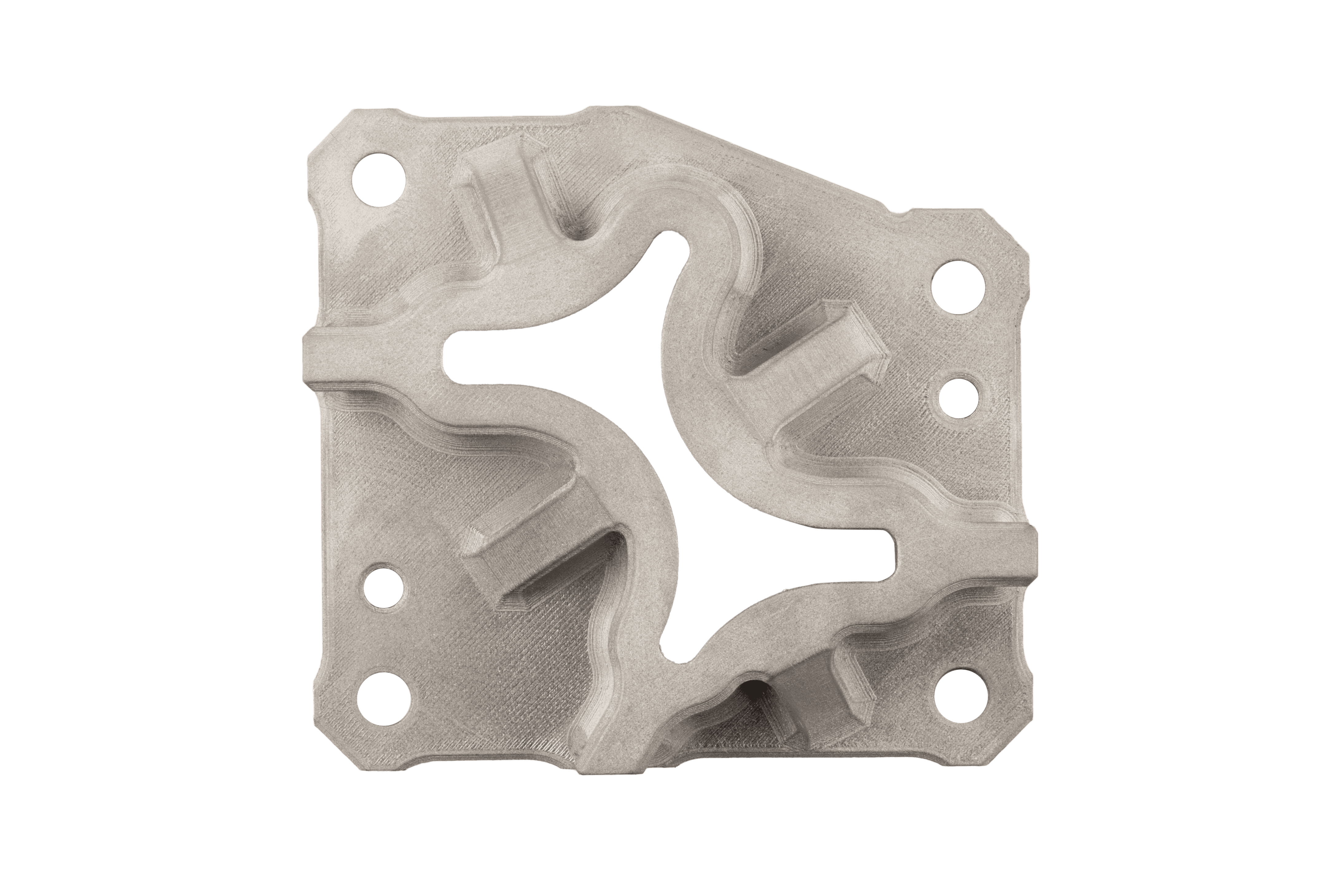Desktop Metal®, a leader in mass production and turnkey additive manufacturing solutions, has qualified the D2 Tool Steel for the Studio System 2™, an accessible metal 3D printing platform that offers customers the easiest way to print high-performance metal parts in low volumes for pre-production and end-use applications.
Desktop Metal’s mission is to make industrial-grade 3D printing accessible to all engineers, designers and manufacturers therefore, Desktop Metal is the first company to offer this material in a two-step bound metal additive manufacturing process, allowing customers to leverage a simple, nearly hands-free process to produce parts for high-strength D2 applications such as cold work metal forming tools, dies, punches, and injection molds with conformal cooling channels.
What is great about D2 Tool Steel?
D2 is a versatile high-carbon, high-chromium air-hardening tool steel characterized by its high hardness and compressive strength after heat treatment. This tool steel offers extremely high wear resistance properties, dimensional stability, and corrosion resistance in the hardened condition, a key benefit for conformal cooling applications. D2 is used for a wide variety of cold work tools that require a combination of wear resistance and moderate toughness, such as coining and sizing tool members, blanking and forming dies, shear cutting tools, gauges, burnishing tools, and other wear parts.
“D2 tool steel has traditionally been a challenging and expensive material to work with,” said Jonah Myerberg, co-founder and CTO of Desktop Metal. “With this material now available on the Studio System 2, we’ve streamlined production of D2 parts to just two simple steps for improved affordability and accessibility. We are excited to be able to offer our customers this new material with higher hardness after heat treatment than all of the other Studio System materials qualified to-date, unlocking new applications that require tooling material grade strength.”
Applications
D2 is used for a wide variety of cold work tools that require a combination of wear resistance and moderate toughness, such as coining and sizing tool members, blanking and forming dies, shear cutting tools, gauges, burnishing tools, and other wear parts.
With the Studio System 2, D2 tool steel parts demonstrate excellent mechanical properties on a more accessible platform than legacy powder bed fusion 3D printing alternatives.
One example of such an application is this aerial cam cutting section, a stamping tool.
Aerial cam cutting section tools are a component of stamping dies that make frame components on high-volume vehicle manufacturing lines. D2 tool steel is a key material for this application because of its high hardness and excellent wear resistance, properties critical for stamping applications where the tool is subjected to repeated impact while forming. Stamping tools like these are produced in low volumes, traditionally using advanced machining techniques and slow feed rates because of the material’s high hardness. With Studio System 2, businesses can now print these tools in D2 at low volumes cost-effectively while reducing complex machining operations, CNC fixturing setups, and CNC tool wear.
About the Studio System 2™
Studio System 2 is an office-friendly metal additive manufacturing system that leverages Desktop Metal’s proprietary Bound Metal Deposition™ (BMD) technology to produce parts. The easy, two-step process – allowing parts to be transferred directly from the printer into the furnace – provides a nearly hands-free experience, while eliminating loose powders and dangerous lasers commonly associated with metal 3D printing. Consisting of a printer and furnace, the Studio System 2 simplifies in-house low volume production of a wide range of complex geometries with outstanding surface finish and high-performance mechanical properties.
In addition to D2, the Studio System 2 is compatible with Ti64 and 316L stainless steel, as well as all materials previously supported by the Studio System, including 17-4PH stainless steel, 4140 low-alloy steel, H13 tool steel, and copper.
